Build Quality
As we already know the SilverStone ST1000-PTS features a single 120mm fan design like many other offerings on the market that has come to be the preferred standard for quiet cooling environments due to the ability to move a larger volume of air at slower speeds than a smaller diameter fan. While great for quiet computing environments the key criteria in our evaluation is whether or not the cooling solution is sufficient, not necessarily it’s sound level or form factor.
External Build Quality
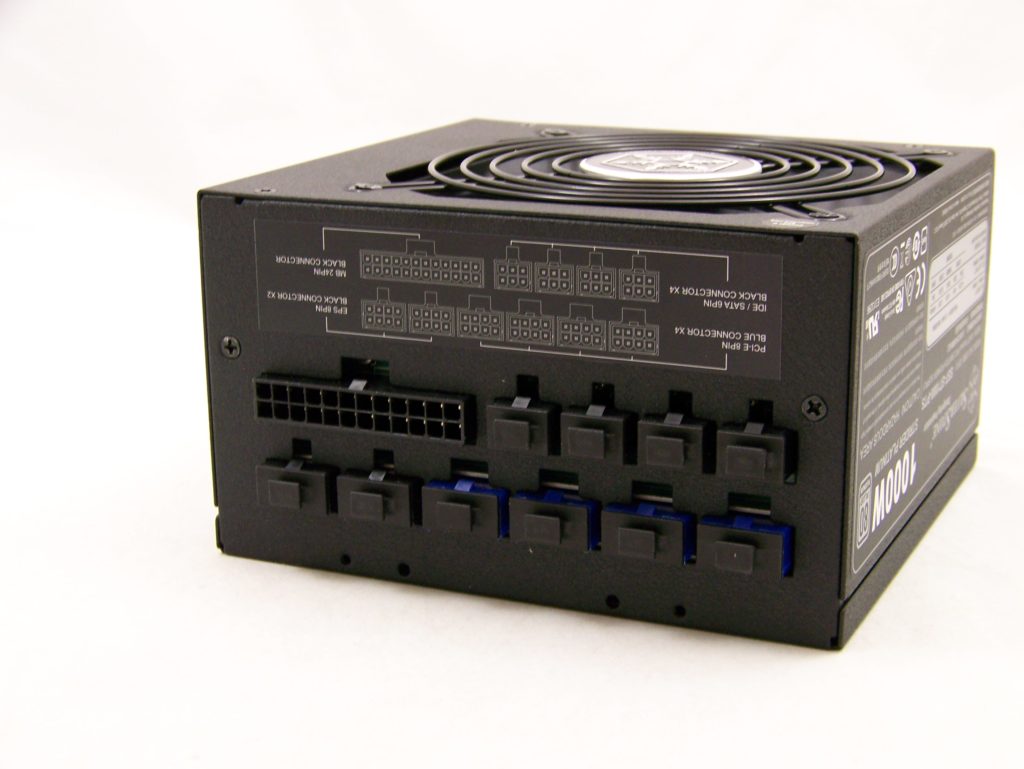
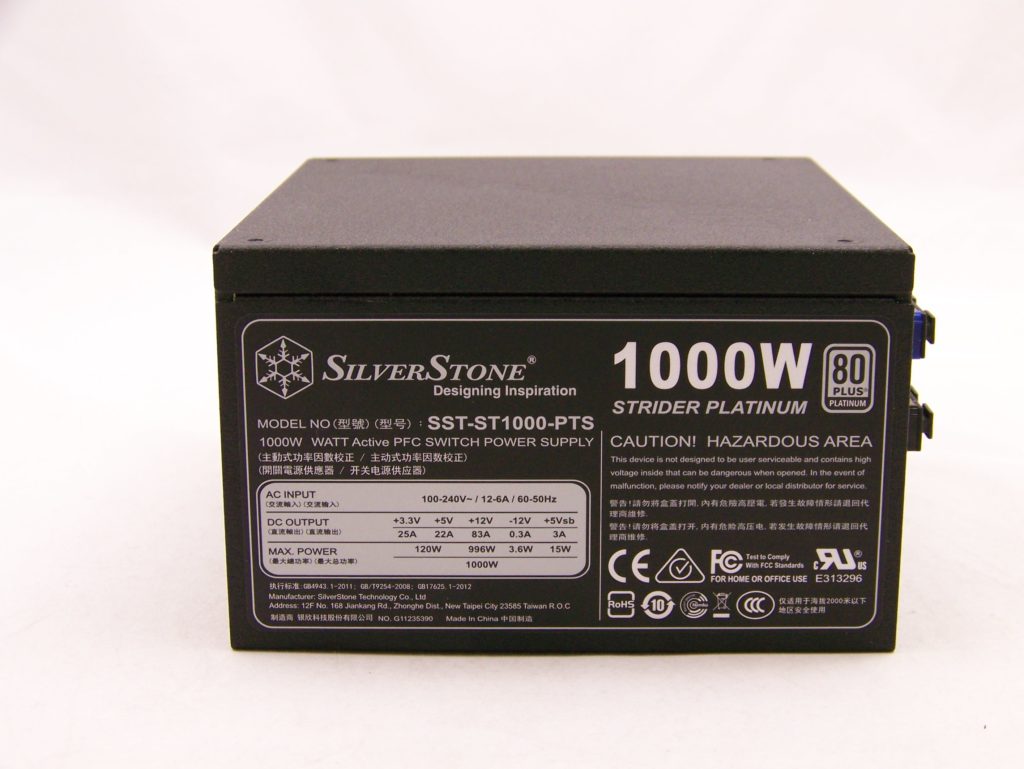
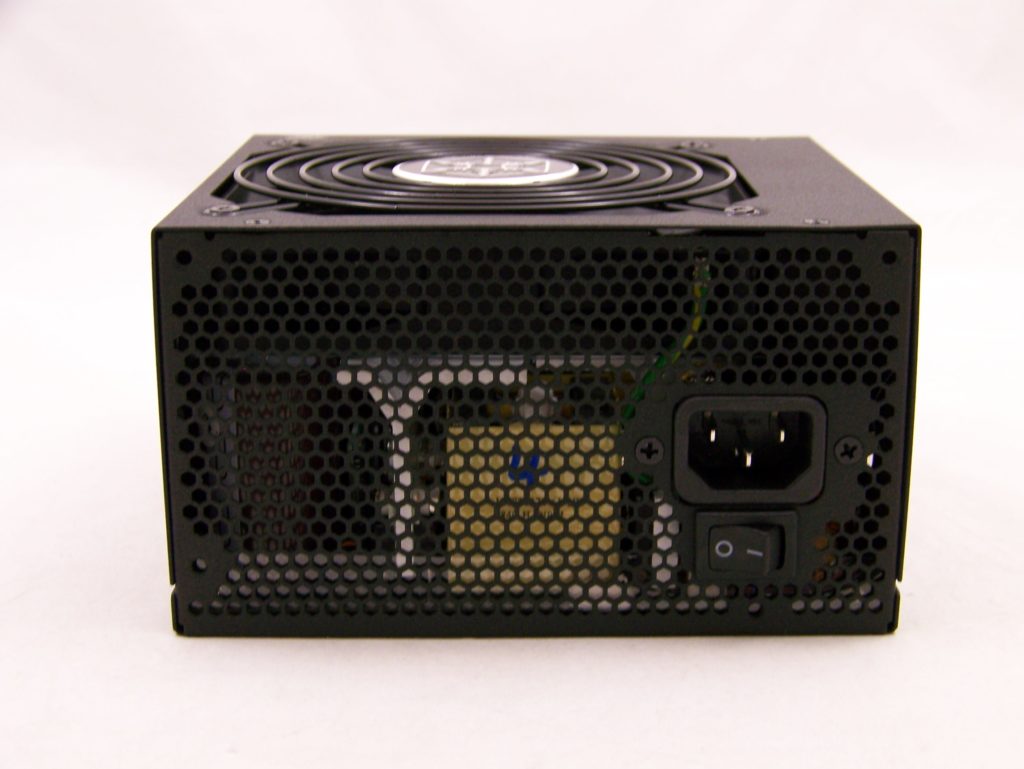
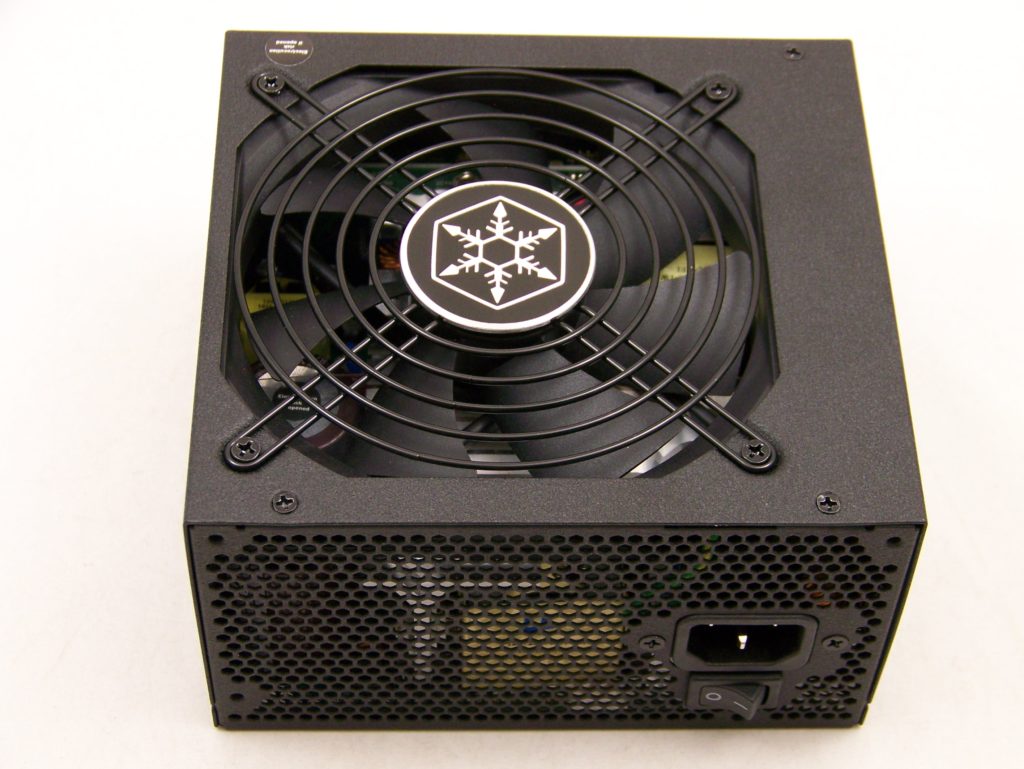
The external build of the SilverStone ST1000-PTS looks much like other ATX12v sized SilverStone units that have been produced over the last few years. It also conforms to much of what has become standard among enthusiast power supplies over the last 10 years or so (the layout is standard for a single overhead fan design with APFC and modular cables). The finish we see today is a slightly textured black finish, that should be durable, and the unit carries the SilverStone branding. The modular interface is fully labeled with a sticker indicating which connector is for which cable type.
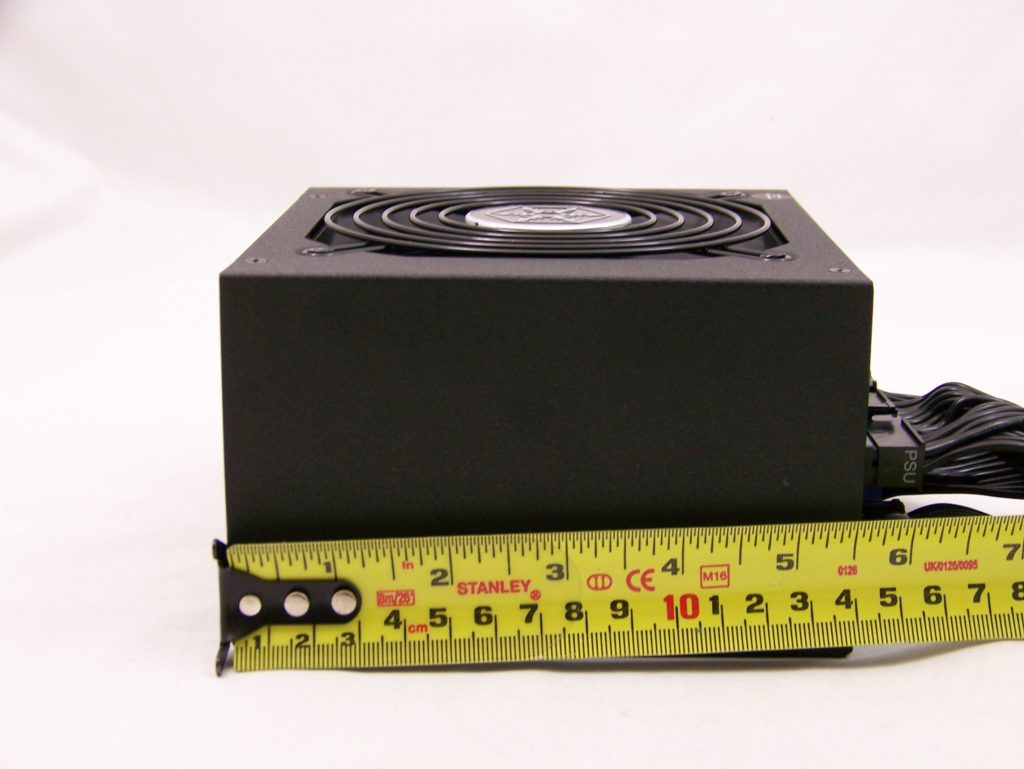
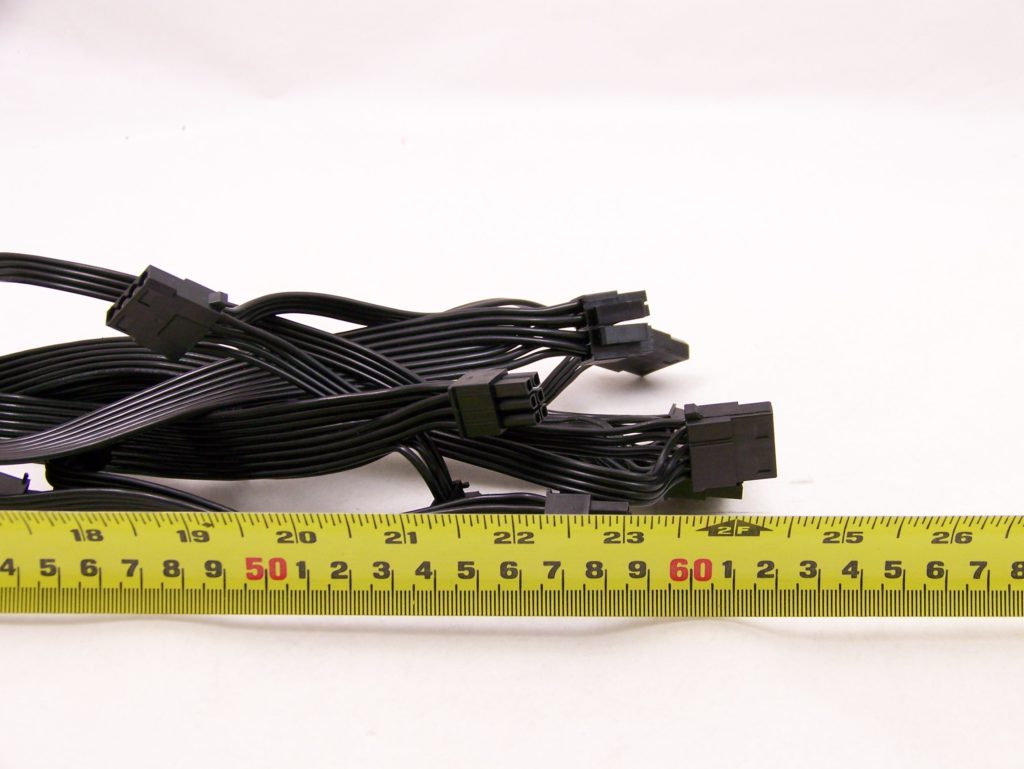
The SilverStone ST1000-PTS comes in at a total length of ~5 1/2 inches while the cables come in at a length of ~22″ to 25″ to the first or only connector. Additionally, the cables are all the FlexForce style cables.
Internal Build Quality
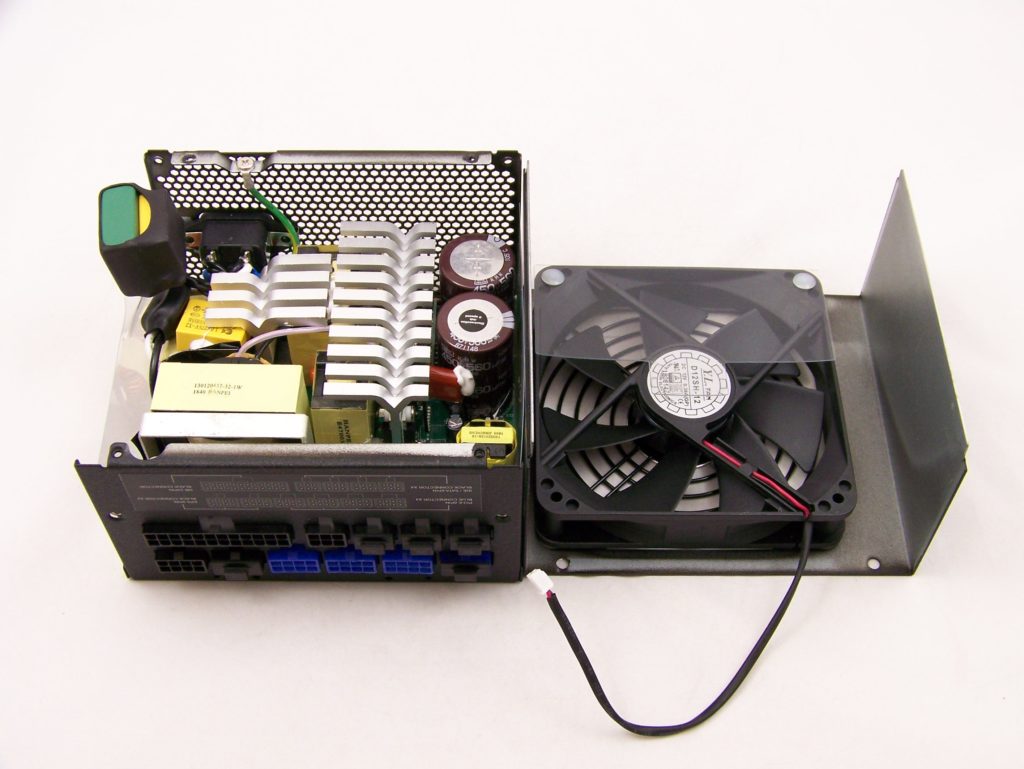
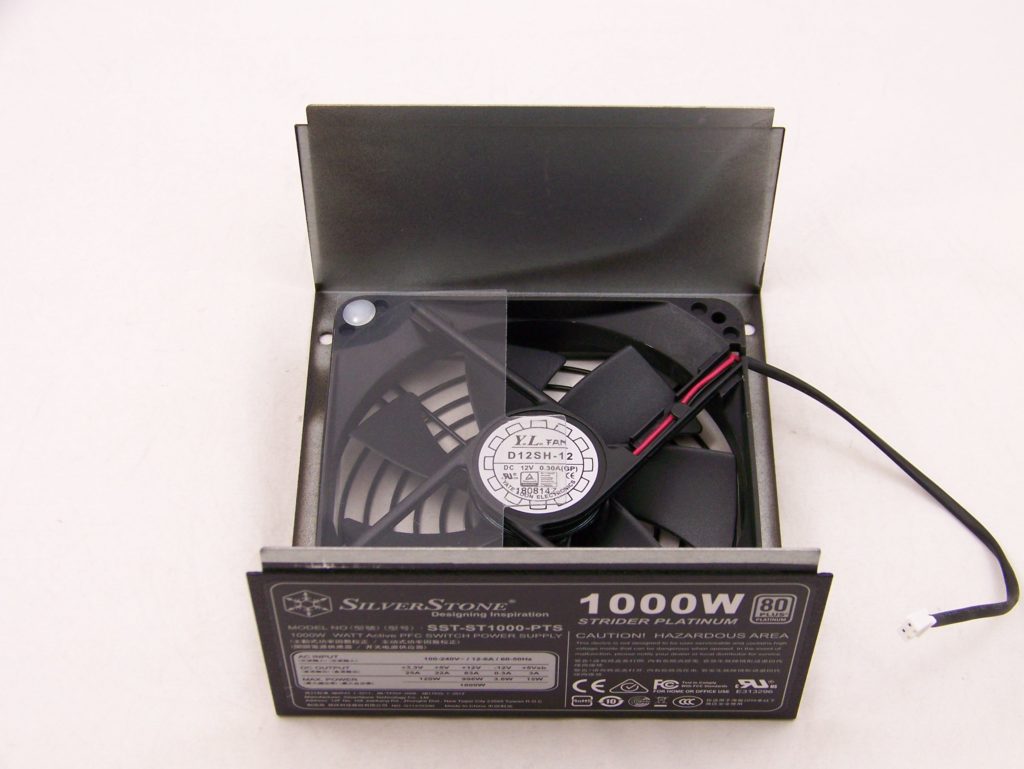
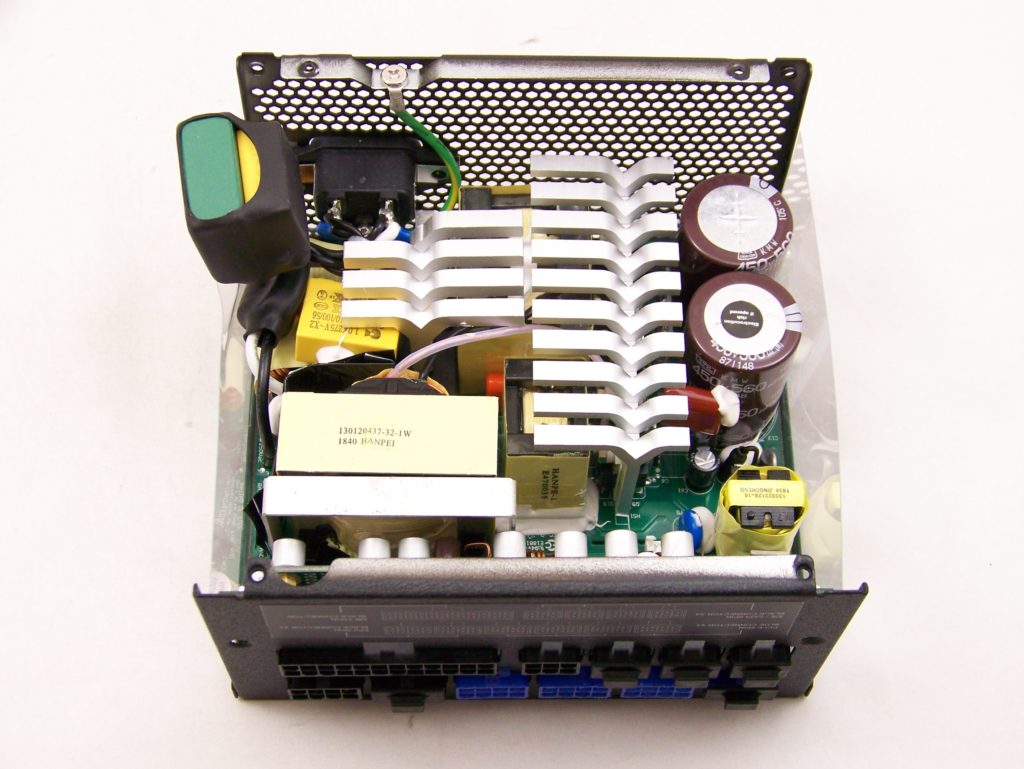
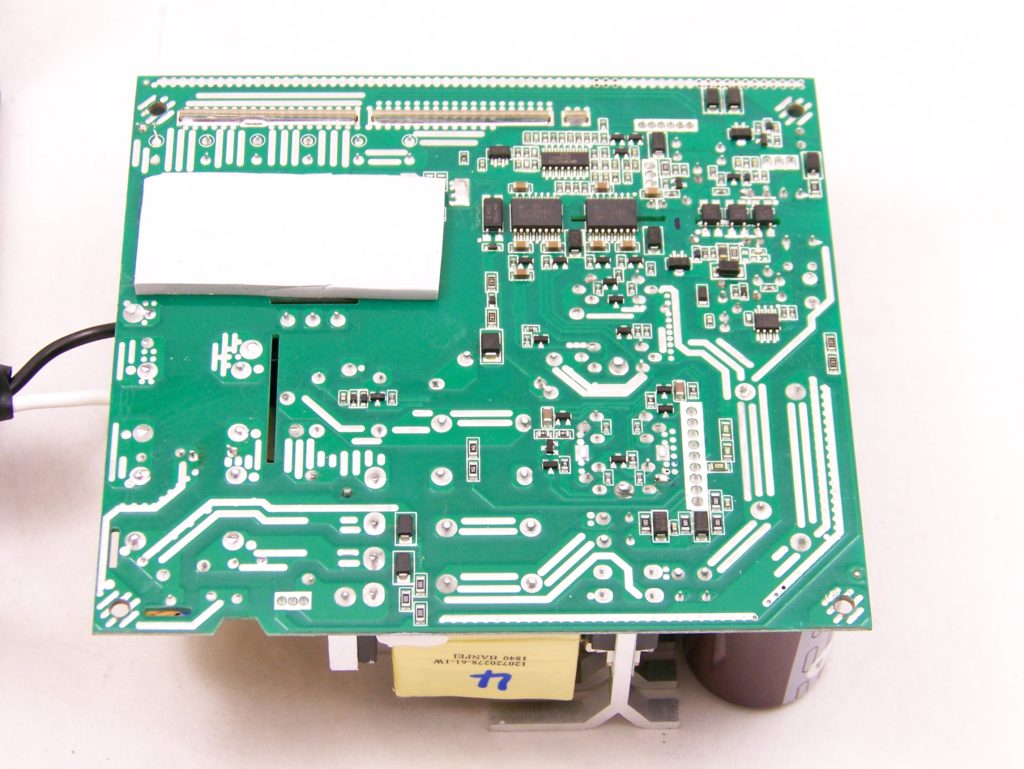
Once we open the top of the SilverStone ST1000-PTS, we see a rather compact unit) especially given the units capacity of 1000W) for an ATX12v formfactor power supply as we would expect given SilverStones marketing for this unit. The topology is a full bridge resonant LLC primary and a secondary where we have synchronous rectification with DC-DC VRMs for the minor rails. The heatsink layout features what appear to be just three small heatsinks installed today. However, they are all the finely machined type we are used to seeing from Enhance. These heatsinks are paired with a 120mm “improved” sleeve bearing type fan (HYB) from Yate Loon. When we look at the back of PCB, we see the 12v MOSFETs here using the housing as an addition heatsink. The soldering here is outstanding.
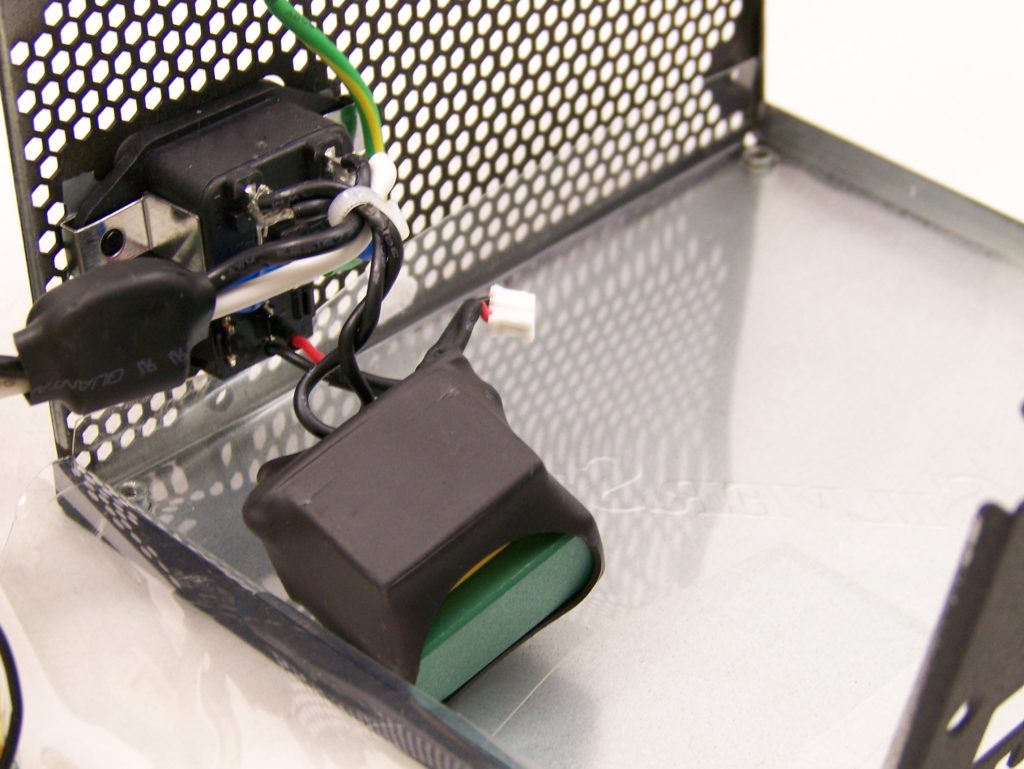
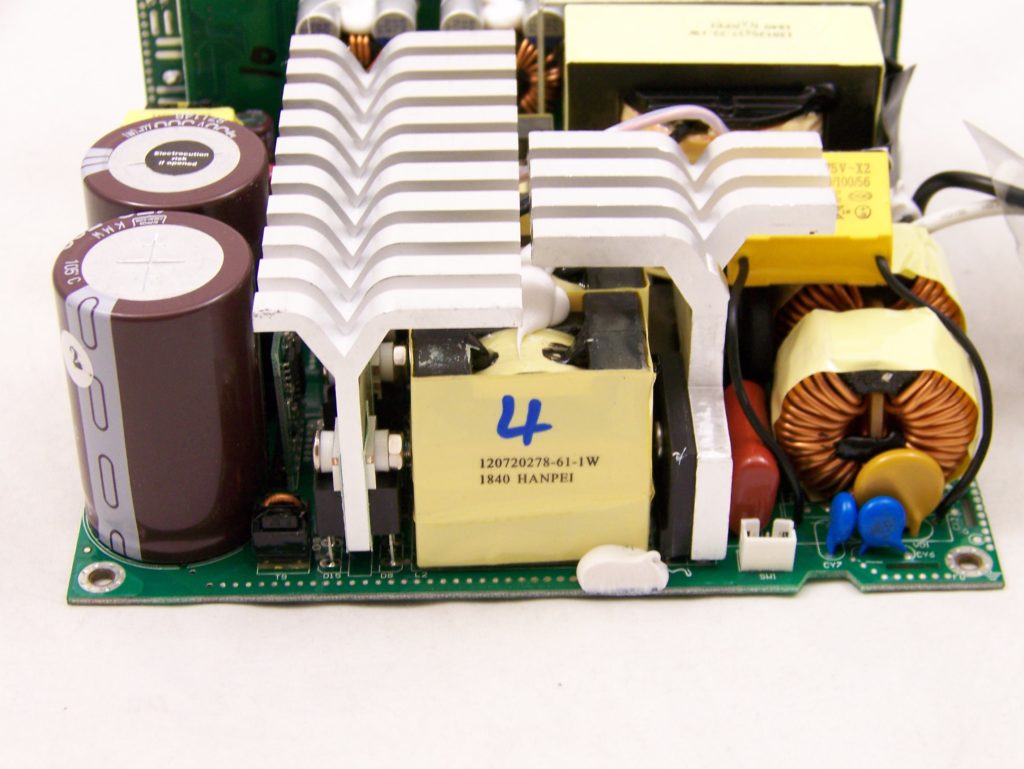
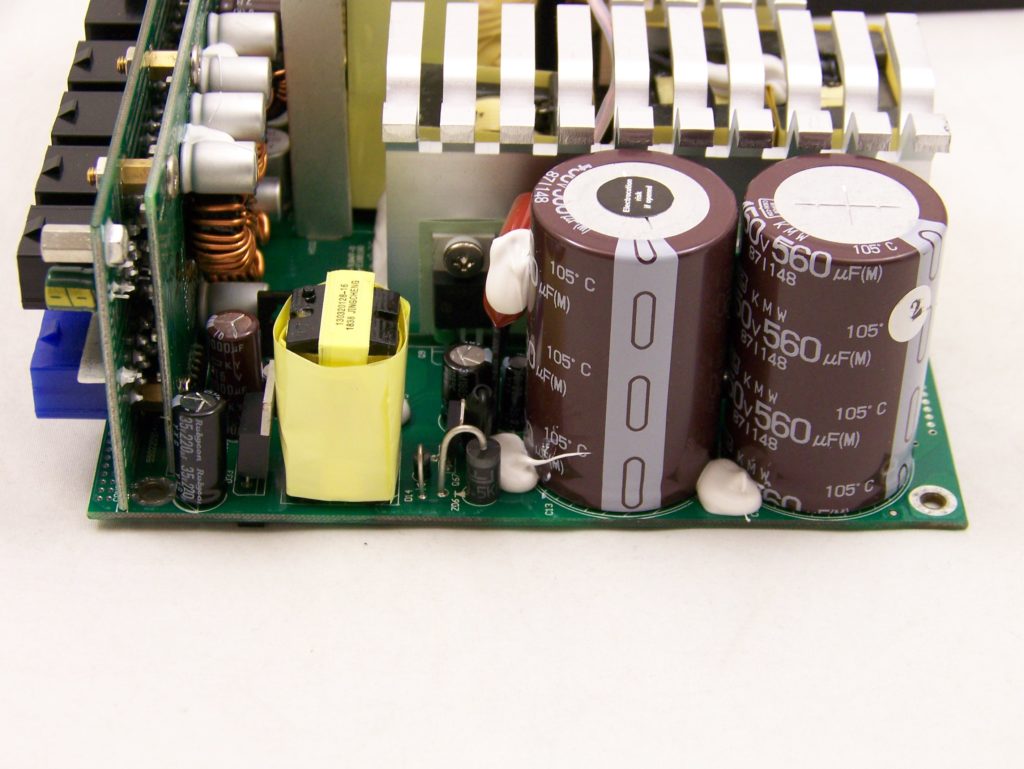
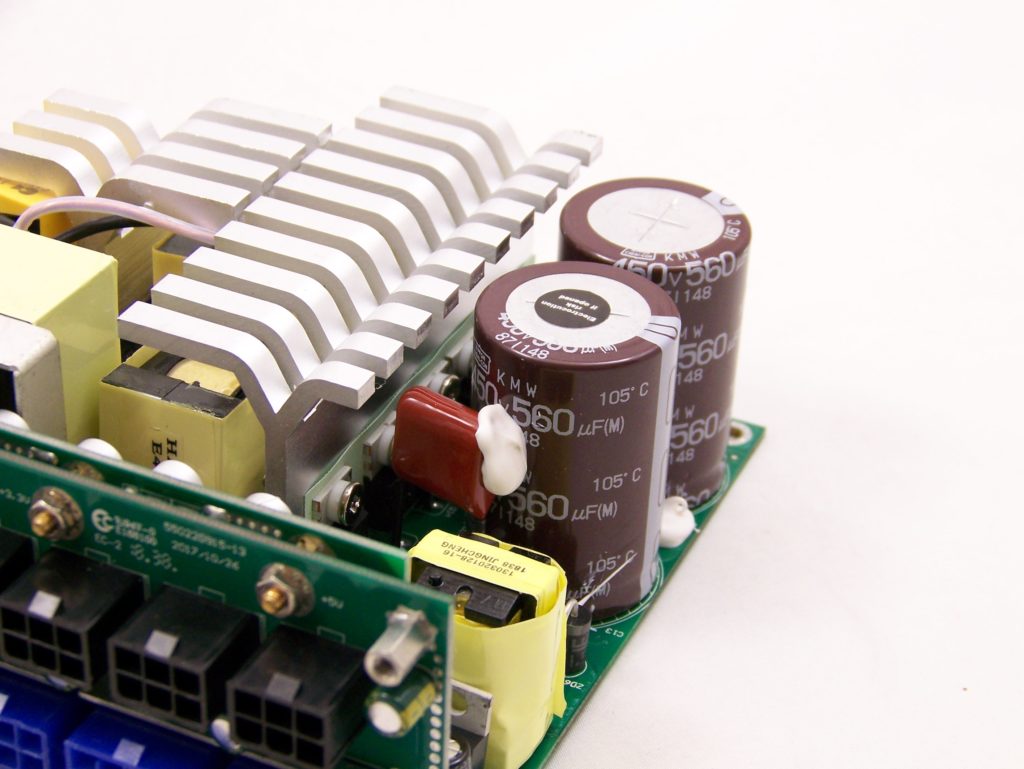
On the primary side, the ST1000-PTS input filtering begins up on the housing itself with some X capacitors and Y capacitors and then trails onto the main PCB. There is an interesting layout here as the input filtering is found more along the side of the main PCB as opposed to the rear as is the case in most designs. The bridge rectifier is next and it is attached to a fairly large aluminum heatsink. As we move on to the primary side proper, we find a coil followed by the APFC power components and the main switchers on a heatsink. Next to this heatsink are the main input capacitors which are provided by Nippon Chemi-con. These capacitors are rated at a beefy 450v 560uF 105C.
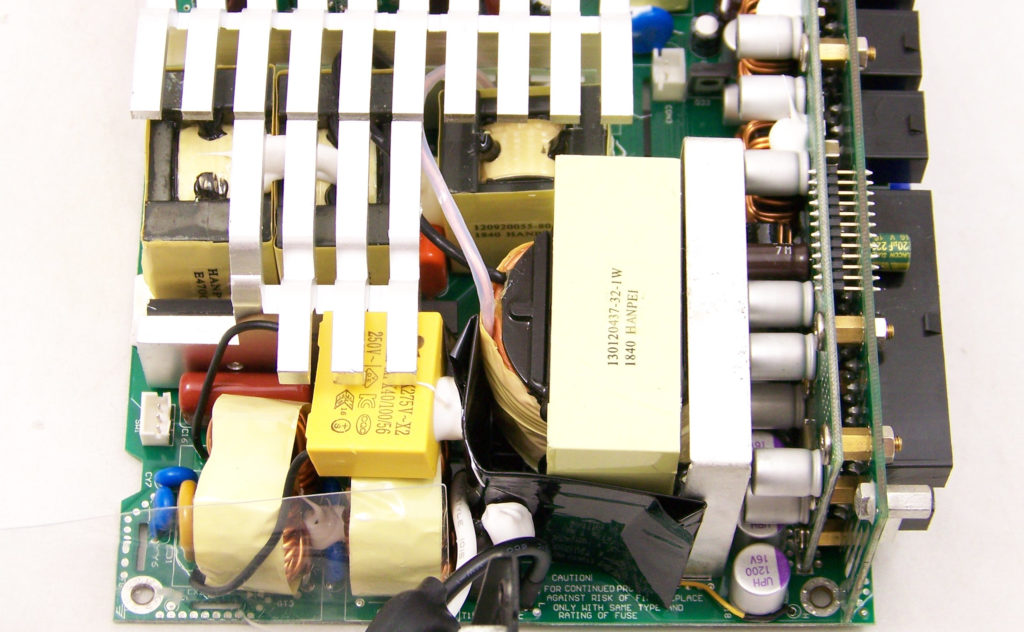
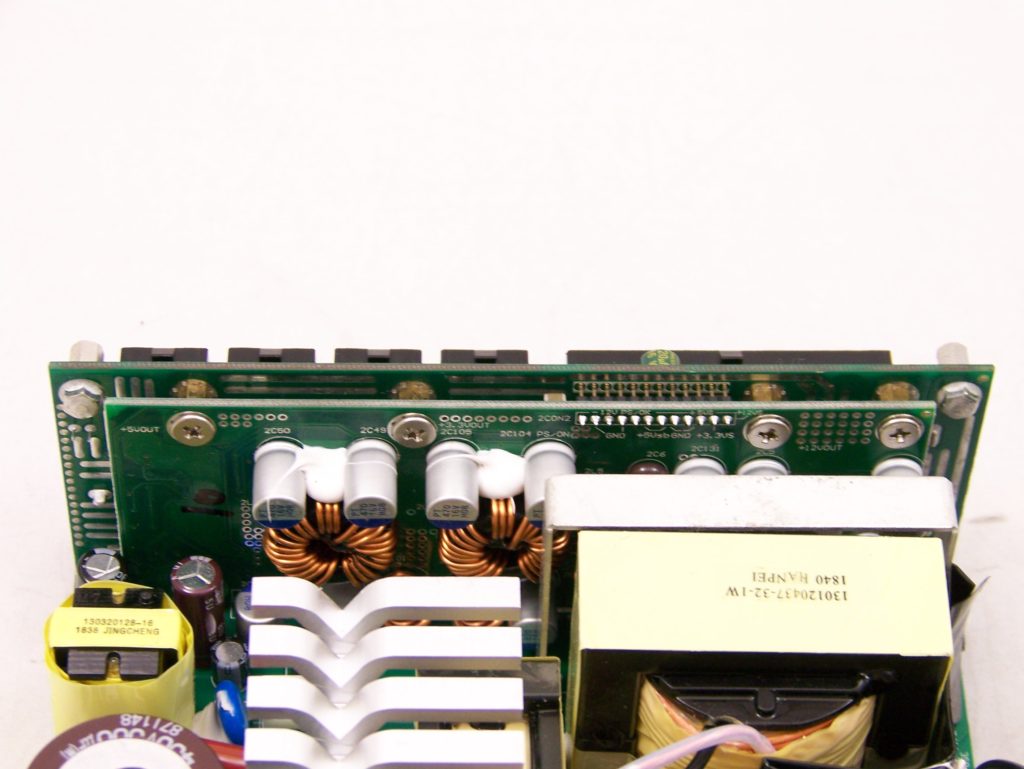
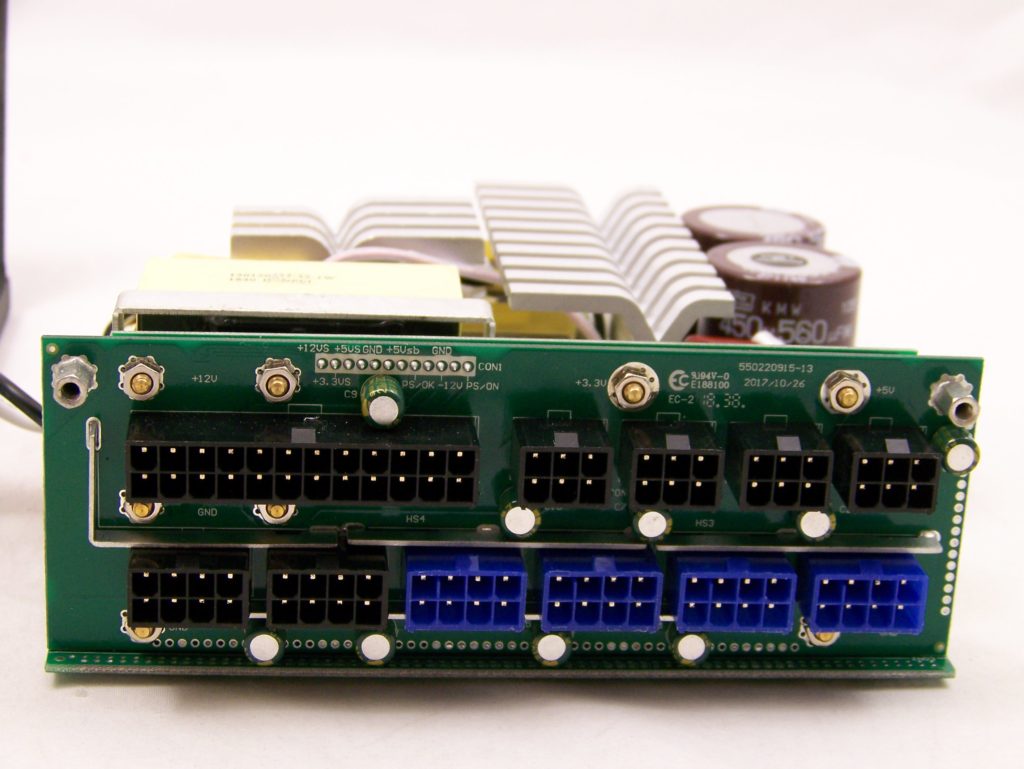
On the secondary side of this unit things continue to be very crowded today. Crammed into this area we find the main transformer in a bit of a different location on the front edge of the main PCB, +5VSB circuitry, protection IC, and of course the DC-DC VRMs. However, these VRMs are housed on their own PCB which spans just about the length of the main PCB and located up against the modular PCB. The solid capacitors throughout the secondary are a mix of CapXon and Unicon capacitors. Additionally, there are a few small Nippon Chemi-con and Suncon capacitors scattered throughout the secondary in various places and roles. Moving on to the modular PCB, we see that the PCB construction looks very nice.
Build Quality Summary
Today’s SilverStone ST1000-PTS is the first truly large capacity power supply we have seen here at TheFPSReview and it starts off this capacity with a bit of a twist. While this unit is an ATX12v formfactor power supply it is much shorter than normal for these units. The good news is that this unit starts the day off by looking like a very well built unit so there is a lot to like at this stage of the game. The exterior of this unit is well built and it looks like most modular overhead fan units these days with its black slightly textured finish. This is coupled will all FlexForce style cabling which is nice to see.
When we move to the interior build quality, we see a modern design that is generally well executed even though it is a bit crowded due to capacity and housing size. The integration is very well done (especially the soldering). The component selection is excellent as we see Nippon Chemi-con and Suncon standard capacitors as well as CapXon and Unicon solid capacitors today; though the CapXon capacitors are not as nice as the others. This all looks hard to top except for maybe the fan selection. So, let’s move on now to the load tests and see how this unit does there!
